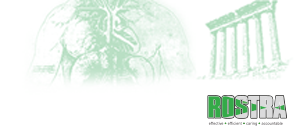Laserveins.org is a national network of surgeons, working with the specialist company Rostra Healthcare Group, founded to provide the best advice and treatment for all aspects of varicose vein problems.
Varicose veins are very common and affect around 60% of the adult population.
They are swollen, distended veins (usually on the legs) that look lumpy and bluish through the skin.
Often they cause aching, pain and discomfort. Varicose veins may go on to cause changes to the skin – (swelling) and bleeding, thrombophlebitis, eczema of the leg. If untreated varicose veins may go on to develop leg ulcers.
The veins are the means by which blood is returned from the legs to the heart. Muscles in the calf and thigh act as pumps to push blood from the foot to the heart. When muscles relax, blood is prevented from running back to the feet by valves in the veins that close like gates.
Normal veins become varicose when the valves no longer work properly, allowing blood to back up (reflux) in the veins. The varicose veins you see in your legs are due to blood damming up in the superficial veins and branches.
Once you have developed varicose veins they will not get better without treatment and may deteriorate over time.
The symptoms most commonly associated with varicose veins fall into three categories:
- Physical: Pain, tiredness and heaviness in the leg.
- Visual: The tortuous blue varicosities seen running down the leg.
- Long-term: Venous eczema, brown pigmentation, ulceration & bleeding.
It is important to stress that not all patients will suffer all the symptoms listed above.
Similar symptoms may have other causes than varicose veins.
Thread veins and reticular veins (also called spider veins or telangectasia) are also extremely common problems which many patients think are varicose veins. Thread veins vary in type, size and colour, ranging from fine red ones to larger purple or deeper blue veins. They often appear to form the shape of a small spider on the skin, hence the term spider veins.
No one really understands why people develop thread veins on the legs, but the main causes seem to be heredity, pregnancy, hormones and minor injuries.
Some experts believe that many thread veins are the result of undetected varicose veins and unless this underlying problem is treated then the thread veins will recur following treatment.
All laserveins.org patients are assessed using duplex ultrasound and the advice you will be given will be tailored to the specific problems caused by your varicose veins.
All of our patients are different and each of the specialists working with laserveins.org are experienced in the assessment and treatment of varicose veins and the problems they cause. They will be able to advise you of the best varicose vein treatment for you.


